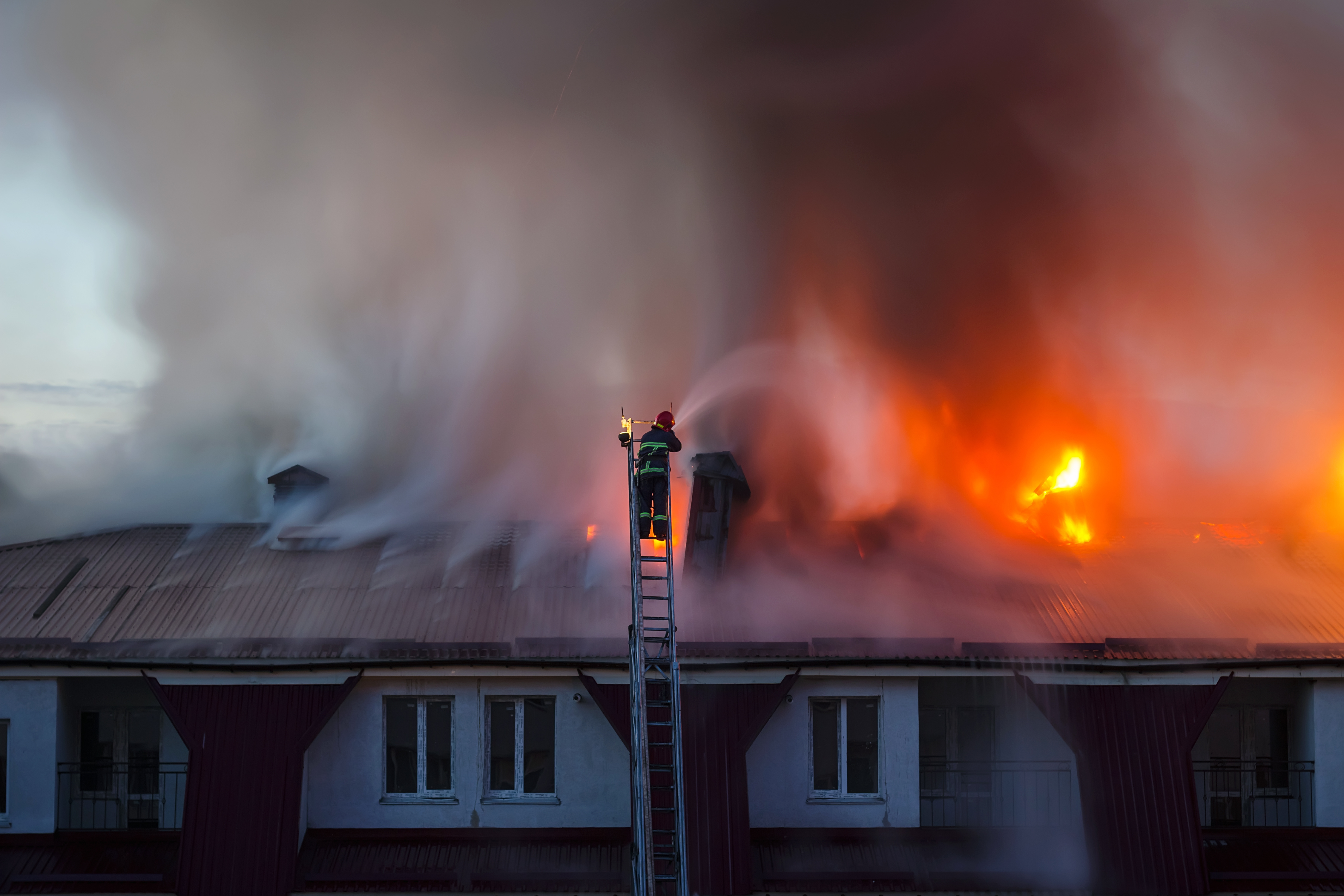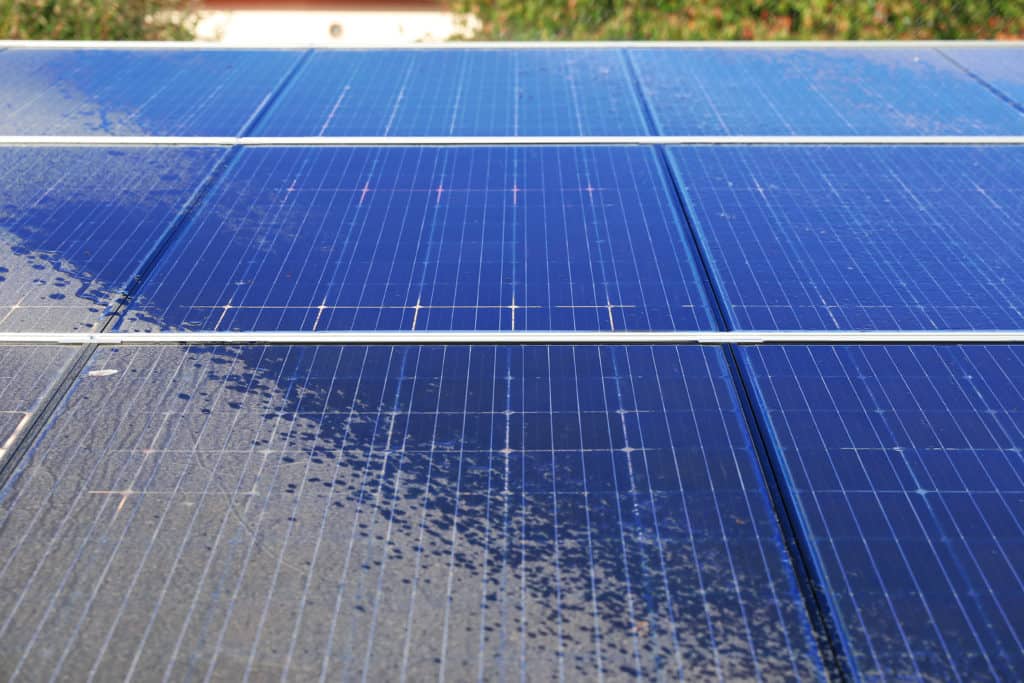
Any time new forms of power or electricity start catching the attention of people, we wonder about their potential to put us in danger. House fires are too common and cause lots of problems, so wondering if solar panels are putting you, your family, and your home in danger is important.
Solar panels have the potential to catch fire, just like other electric systems. It is very unlikely, and the risk of a solar panel catching fire is very small. With proper installation and solid manufacturing, solar panel fires are avoided.
While this doesn’t happen very frequently, there have been recorded solar panel fires. There are many ways to prevent this to happen and to manage the risks associated with solar panels.
What Would Cause A Solar Panel Fire
The reasons for a fire involving a solar panel as vast. There are many things that could be the root cause, but the most common of the very few fires that have been recorded is poor installation. That is a general category, because the poor installation could be anything from faulty connectors to DC isolators.
A common problem is a phenomenon known as a DC arc where the power gets charged enough to jump and ignite something nearby. This stems from incorrect installation of improper materials. “Although arc flashes can occur with any electric installation, but solar PV systems are particularly sensitive to them because of the continuous DC current and the high currents and voltages involved” source.
Like any electrical system, solar panels can malfunction, short out, or catch fire. Those mentioned problems and other faulty equipment can cause hot spots which may eventually ignite if not properly taken care of.
Solar panel fire can also be caused by lighting strikes, though this is much less common. The most frequent issues are due to voltage issues like power surges, like when electricity is transferred from DC to AC or when the electricity makes its way into your home.
Solar systems are pretty combustible, so once they are started they can spread pretty quickly through all the solar cells, frames and connections. Depending on the root cause, they can also burn very hot, enough to melt metal and cause the fire to come falling in from the roof. Most of the time, this is very unlikely, but it can be possible without careful watch over installation and the materials used.
“When it comes down to it, any electrical system carries the risk of causing a fire, be that a faulty outlet, old wiring, or defective appliances. A solar system is no exception, but the odds are certainly on your side” Source.
Reduce the Risks
As you begin the process, there are multiple things to consider that will reduce the risks of a solar panel fire before you even have solar panels in place. Seek out the best help with your decisions and get the best made materials!

There are also great resources available that will help to reduce the risk of a solar panel fire. One of the first and most important is to be sure the company and professionals you choose to install them are professionals in there field and have done it many times. Experts like that are normally more competent in installing them and making sure all the cables and connectors are properly places. Search out a respected company and consider finding professionals that are Microgeneration Certification Scheme (MCS) certified. This means that they your products and installation is kept up to the highest standard.
The panels you choose could also have something to do with their combustibility and likelihood of wear. Cheaper panels likely be made of cheaper materials and have faulty connections. The panels you choose should be sturdy, and if you are really worried about it look into non-combustible frames and connections. The panels should also comply will all electrical standards and regulations.
Another aspect of the panel to look into is the type of inverters is used. There are three types generally; namely, central inverter, power-based optimized inverter, and micro inverters. Each of these have there ups and downs, but consider micro inverters because of there benefits.
“One of the benefits of microinverters is that it mitigates one of the causes of solar panel fires. This is because a microinverter converts DC power to AC power directly at each solar panel, resulting in AC power traveling down from your roof to your basement electric panel instead of DC power. Having AC power moving across your roof is safer because it lessens the danger of electric arcs” Source.
Take These Precautions
After you have already done your research, purchased your panels, had them installed, there are still preventative measures you can take to ensure fires don’t start igniting on your roof.

Monitoring your entire system is really important. Taking a look at it, and the power it is putting out will help you to notice any discrepancies that need your attention. “If you have microinverters or power optimizers, you will have the ability to check the power output of individual panels in your system” source.
It is also important to check and make sure rodents or birds or other animals are not disrupting the cables or chewing holes in things. A chewed cable is a fire hazard in any circumstance. In doing so be sure to clean off the panels and check for cracks or breaks. Cleaning them off will take away any leave or combustible material that would cause them to catch fire more quickly. Rain will usually suffice, but if not, do a little cleaning yourself.
You should also have the entire system routinely checked by experts of professionals. They can offer any needed maintenance or service that is needed to keep your panels in tip-top shape. If things do not look right to you or something changes be sure to call and get a second opinion.
Cleaning and maintaining nearby trees and foliage will help not only to keep your panels from being shaded, but will also prevent fire hazards like leaves and sticks from building up, and overall your solar panel output will be better!